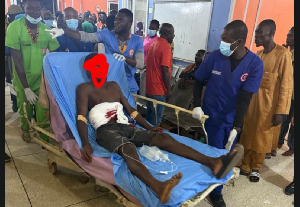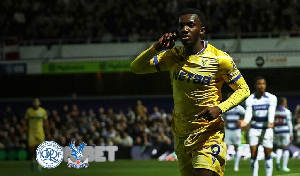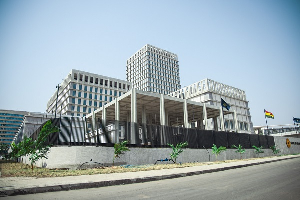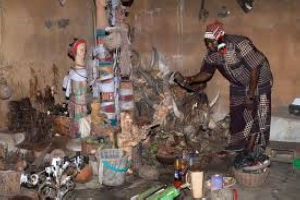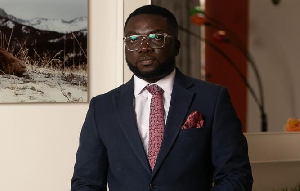By Dr. Michael J.K. Bokor
Tuesday, December 17, 2013
Friends, it is no exaggeration that Ghana and Nigeria share a common fate when it comes to many issues regarding nation-building and politics. As former colonies of Britain, their destinies have been linked together in many ways. Wonder why whatever happens in one country is replicated in the other? Just go down the memory lane and you should find the explanation.
But now, there is something else cropping up in Nigerian politics that may open the eyes of Ghanaians and make them wonder whether if a decision is taken and institutionalized to make the positions of CEOs for the Metropolitan/Municipal/District Assemblies elective it won’t rub salt in any wound on the political scene. Or whether it won’t better shape our democratic path.
We already know how turbulent Nigerian politics has been all these years—and how frightening it is now that Boko Haram has injected terrorism into it! Or that the People’s Democratic Party (PDP) is splitting up into two: the old PDP base that President Jonathan Goodluck has in his grips and the breakaway PDP faction calling itself the New PDP (that former Vice President Atiku Abubakar is championing to dislodge the incumbent at Election 2015).
We see right at this point a rebellion against the status quo by a faction in the party that established that status quo, in the first place. A house divided against itself! Scary already because the PDP is the party in power that is disintegrating!! The centre cannot hold when things fall apart this way.
The latest element to add a new complexion to the problem is emerging from the lower levels of governance: the Governors presiding over local administration in this federal system. Of course, we know that the PDP (that produced Yar’ Adua and Jonathan Goodluck to rule Nigeria in our time) has been rocked by internal bickerings that threaten its future viability or the fate of the incumbent President. Should he go for a second term or not?
Already, former President Obasanjo has jumped on Goodluck Jonathan to accuse him of very serious acts of commission or omission that should make him constantly look over his shoulders as he determines where to go next: to remain in contention for Election 2015 or not. It’s no laughing matter!!
Now, the heat is mounting on the very foundation on which Jonathan Goodluck stands in administering affairs in a united Nigeria on the basis of federalism—granting autonomy to the states in many ways, where the Governor is the local fount of power and authority.
Here is the threat to Jonathan Goodluck and his PDP. It has been reported that five State Governors put in office on the ticket of the original PDP have defected to the opposition All Progressives Congress (APC). Other State Governors are said to be readying themselves to follow suit, which means that the original PDP will lose administrative control in the affected states. That’s not a good omen for Goodluck Jonathan and his team in Abuja.
To worsen matters, the PDP leadership is in court challenging the decision of the defectors. We are told that the legal battle raging will further erode confidence in Jonathan Goodluck and his PDP as the breakaway faction (the New PDP) gains grounds and digs in.
The Nigerian situation is intriguing because these Governors were elected at general elections. But the lesson is clear: that in a democracy, those who hold power must face the people and be judged through the ballot box. Does this Nigerian experience challenge the Ghanaian system to ensure that those who administer affairs in the Metropolitan/Municipal/District Assemblies are elected and that only the electorate in the various Metropolitan/Municipal/District Assemblies should determine who they want as their CEOs? And what will be the implications?
Of course, we in Ghana seem not to be interested in growing our democracy beyond what it has been all these years since the first general elections were held in November/December 1992 to put in office power brokers. We know that over the years, this ballot-paper democracy hasn’t really empowered the people to control the ebb and flow of politics at the national and local levels, which is why our politicians think that they have “blank cheques” to do as they will and wish.
If the Kufuor administration had made good the NPP’s promise to make possible the election of CEOs for the Metropolitan/Municipal/District Assemblies, the situation might be clear and different. But it couldn’t for reasons best known to Kufuor and his team.
The NDC administration hasn’t been keen on supporting the agitation for election of such CEOs. One wonders why and whether it will ever change that stance. More importantly, one wonders why Parliament hasn’t been interested in it either.
But the truth is that when such positions become electable, our democracy will move a step further away from the rubber-stamping that characterizes the administration of affairs at all levels. Once the party in power has a President who initiates a move, the majority in Parliament Okays it and no one expects the CEOs appointed by the President to kick against it. Thus, it is a done deal right from scratch. This is not how a viable democracy should function.
The Nigerian example may have its own inadequacies but it proves to me that there are better ways to empower the people. Now that those in power on the ticket of the PDP have defected to the opposition and are still at post, a new window has been opened for us to see more broadly the workings of that country’s democracy.
The matter is in court, and indications are that the Goodluck Jonathan administration is already reeling from the repercussions. It is a-make-or-break affair, which excites my curiosity all the more. (Read more here: http://vibeghana.com/2013/12/15/nigeria-court-cant-sack-defecting-governors-eze-chukwuemeka/
Oh, how I wish we can have same in Ghana! The balance of forces must help our democracy grow.
I shall return…
• E-mail: mjbokor@yahoo.com
• Join me on Facebook at: http://www.facebook.com/mjkbokor to continue the conversation.
Opinions of Wednesday, 18 December 2013
Columnist: Bokor, Michael J. K.


